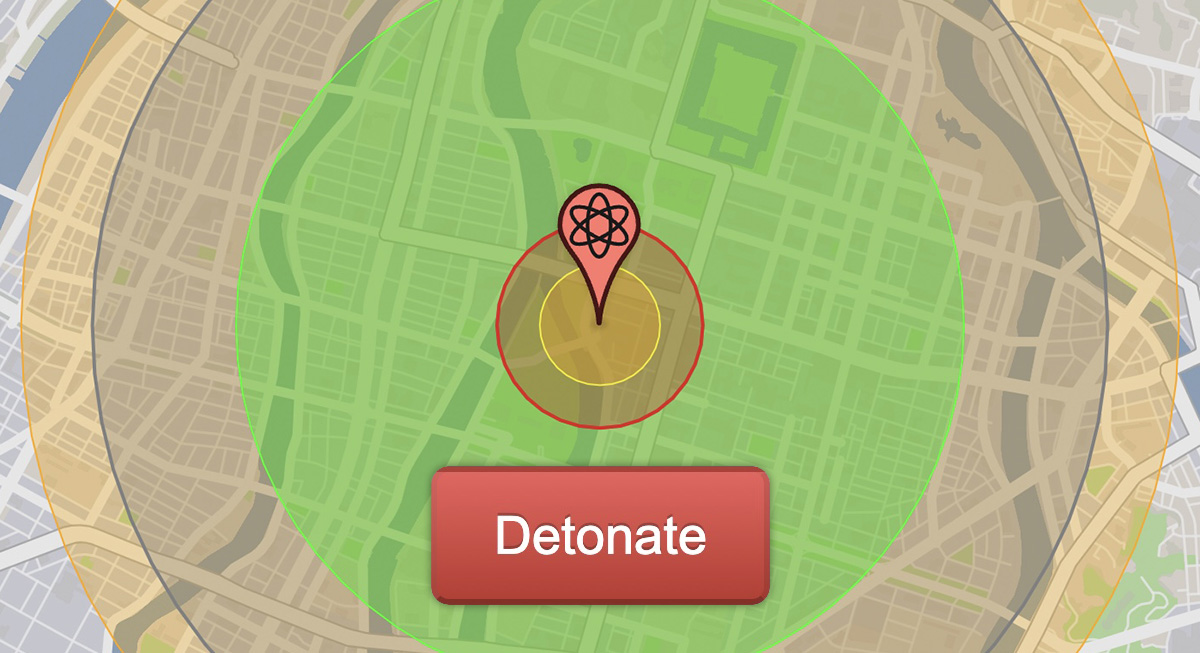Silver Supporter
- Messages
- 8,385
- Reactions
- 21,056
Vagi-mony!but by people who are led by emotions and money

Follow along with the video below to see how to install our site as a web app on your home screen.
Note: This feature may not be available in some browsers.
Vagi-mony!but by people who are led by emotions and money

My opinion is difficult to express.
On one hand, every law that restricts arms in any way is unconstitutional.
On the other hand some weapons/arms are far too powerful, indiscriminate, or uncontrollable by the user.
Where that line is? I don't know.
But I do know that anything that can destroy cities should be tightly controlled. George Soros and his ilk can certainly afford a few low yield nukes and bio/chem weapons. Imagine if he funnels those to the ANTIFA/BLM types.
Again, I don't know where to draw that line.
I agree. Once it is established that constitutional protection of the RKBA is not unlimited, the only remaining question is where to draw the line. That is a political issue, decided by the people who decide whether constitutional law shall be upheld, and also by whichever side is willing to organize effective political support.
"Like most rights, the Second Amendment right is not unlimited. It is not a right to keep and carry any weapon whatsoever in any manner whatsoever and for whatever purpose: For example, concealed weapons prohibitions have been upheld under the Amendment or state analogues. The Court's opinion should not be taken to cast doubt on longstanding prohibitions on the possession of firearms by felons and the mentally ill, or laws forbidding the carrying of firearms in sensitive places such as schools and government buildings, or laws imposing conditions and qualifications on the commercial sale of arms. Miller's holding that the sorts of weapons protected are those 'in common use at the time' finds support in the historical tradition of prohibiting the carrying of dangerous and unusual weapons. Pp. 54–56." - Antonin Scalia, USSC Justice, District of Columbia v. Heller, for the majority.
Here Scalia is speaking of the legal landscape at the time the Heller decision was written, and he is enumerating the case law that was used to arrive at the Heller decision. The current legal situation regarding the right to keep and bear arms is an entirely different matter than the philosophical situation regarding that same right.
I will not respond specifically to the rest of your post, except to say that I agree with Scalia on the question of what the actual words of the 2nd Amendment mean. The prefatory clause has NO effect on the operative clause. It could read, "The moon being made of green cheese..." and it would not change the meaning of the operative clause, "...the right of the people to keep and bear Arms shall not be infringed."
From the Heller decision:
"(1) The Second Amendment protects an individual right to possess a firearm unconnected with service in a militia, and to use that arm for traditionally lawful purposes, such as self-defense within the home. Pp. 2–53.
(a) The Amendment's prefatory clause announces a purpose, but does not limit or expand the scope of the second part, the operative clause. The operative clause's text and history demonstrate that it connotes an individual right to keep and bear arms. Pp. 2–22.
(b) The prefatory clause comports with the Court's interpretation of the operative clause. The "militia" comprised all males physically capable of acting in concert for the common defense. The Antifederalists feared that the Federal Government would disarm the people in order to disable this citizens' militia, enabling a politicized standing army or a select militia to rule. The response was to deny Congress power to abridge the ancient right of individuals to keep and bear arms, so that the ideal of a citizens' militia would be preserved. Pp. 22–28.
(c) The Court's interpretation is confirmed by analogous arms-bearing rights in state constitutions that preceded and immediately followed the Second Amendment. Pp. 28–30.
(d) The Second Amendment's drafting history, while of dubious interpretive worth, reveals three state Second Amendment proposals that unequivocally referred to an individual right to bear arms. Pp. 30–32.
(e) Interpretation of the Second Amendment by scholars, courts and legislators, from immediately after its ratification through the late 19th century also supports the Court's conclusion. Pp. 32–47.
(f) None of the Court's precedents forecloses the Court's interpretation. Neither United States v. Cruikshank, 92 U.S. 542 (1876), nor Presser v. Illinois, 116 U.S. 252 (1886), refutes the individual-rights interpretation. United States v. Miller, 307 U.S. 174 (1939), does not limit the right to keep and bear arms to militia purposes, but rather limits the type of weapon to which the right applies to those used by the militia, i.e., those in common use for lawful purposes."
Thanks for the reply.
In broad terms, you label the "limits" argument with a negative connotation, then refute it with a "people" argument, then engage in it by denying a personal belief that people should have ready access to WMD.
In reply:
1 - Straw man. The extreme example doesn't have to be nukes. It can be chemical weapons, kilowatt infrared lasers, MOABs, armed supersonic aircraft, etc. Should individual citizens have constitutional protection of a right to keep and bear these types of arms?
A straw man is a fallacy intended to misdirect. The preceding question is not fallacy, it is legitimate. In it's absence, nothing is defined.
The idea that "shall not be infringed" applies to all forms of weapons places an entire society in the untenable position of not knowing who will kill everyone or when it will happen. This is not a politically viable position. No one will support it, ergo no clout, ergo no success.
2 - "People already have nukes." No individual has the capability of deploying state-owned nuclear weapons. To the contrary, a complex system is in place defining protocols and procedures for deployment. Yes, the govt consists of people, but that doesn't equate to "people already have nukes" in the way you suggested.
3 - The "limits" argument is not new. It predates the internet by decades. Your closing comments place you on the same ground as most other informed gun owners: our right to KBA fighting arms shall not be infringed, and we typically consider fighting arms to be those portable weapons that can be used by individuals or groups in effective resistance against other individuals or groups.
My personal opinion: the overriding goal is to preserve a massive guerilla capability against which no professional military can prevail because the costs in terms of loyalty, money, and attrition are too high.
When a govt attempts to oppress a righteous armed citizenry, it is difficult to sustain the effort long enough for success because the military will tire of killing righteous citizens and many will defect to the resistance taking their weaponry with them, and the govt will run out of money to support the oppression, and the citizens will never stop picking off the oppressors.
The most important point that can be made, IMO, is that an adequately armed citizenry serves as a peaceful deterrent to the ambitions of tyrants.
Peace and freedom can prevail as long as the citizenry retains the ability to defend peace and freedom.
The fight doesn't have to happen. The deterrent by itself can preserve peace and freedom. Which is why we need to preserve the deterrent.
Americans who support the gun control agenda are either uninformed, or evil.
2 cents.
I'm not sure what point you are trying to make, or what question you are trying to ask.
Inalienable and unalienable mean the same thing. They were used interchangeably by the people who wrote the DoI, while they were writing it.
https://www.ushistory.org/declaration/document/unalienable.html
Neither mean unlimited.
Constitutional protection of your right to freedom of religion is not unlimited. Start an Aztec church and begin sacrificing girls, get arrested and prosecuted, argue in trial that your right to sacrifice humans is protected by 1A, learn firsthand that in/unalienable does not mean unlimited, go to jail. Simple.
The reason I think we can win a battle in court to preserve the citizen right to arms is this: America is a constitutional republic.
The Constitution is the supreme law of the land. No other law can violate its provisions.
The duty and responsibility of the judicial branch is to rule according to the law. When the Court fails this duty, the people have recourse.
They can assemble and petition for redress, can elect representatives who will impeach justices who violate the oath to support and defend the Constitution, can organize en masse to oppose the narrative of the irrational left with their own narrative of rational facts and logic, etc.
I respect your attempts to foster public support for the right to arms, but I'm not sure about your footing, or about your specific objectives.
What's up with unalienable?
Thx.
A point of this thread was discussion on whether constitutional protection of the citizen right to arms is limited or unlimited.
In that context, types of arms does matter. Nuclear bomb vs. handgun. Arguably, the latter should be protected, the former not. Again, the real question is where to draw the line, and the answer to that question is determined by the side that most effectively unites & organizes political support.
I believe the Resister seeks the same thing most of us seek: common ground on which massive numbers of gun owners can be united to effectively oppose the irrational GC agenda. IMO - his effort is slightly more focused on convincing people to organize around his specific position, rather than seeking a position on which the most people can be organized. But I could be wrong about this, and maybe i am.
The needed common ground is surprisingly difficult to find, as evidenced by the 20 year observation that most threads on most gun boards consist of people arguing with each other, with agreement rarely attained.
Have you ever submitted a 4473 in your name? If the answer is yes, that means you've complied with government regulations controlling the sale and transfer of firearms. You may not have agreed with the principle behind the background check, but you voted with your wallet and did it anyway.
Everything after that is just the nitty gritty.
The Right, was however, intended to be absolute. The only legitimate way to change it to a limited "right" is to amend the Constitution.
Only if public opinion is widely reported. After all, it depends on who is doing the "reporting". See all the polls that invariably use the following tacticsThey are not immune to public opinion.




Only if public opinion is widely reported. After all, it depends on who is doing the "reporting". See all the polls that invariably use the following tactics
1. Small sample sizes of 700-1000 persons
2. Selective survey locations/calls
3. Wording of the survey questions so as to be ambigiously answered
I understand you to say that constitutional protection of the natural right to arms was intended to be absolute.
In late 18th century America, suffrage was denied to Jews, Quakers, Catholics, women, Negroes, Indians, and unpropertied poor people.
Various laws identified "lunaticks" as exempt from otherwise nearly universal militia service requirements for men.
Various states had laws against the transfer of guns to Indians, Negroes, and Loyalists, especially during the War.
If you argue that the Founders intended an absolute protection of the right to arms for all people, a student of history will be able to cite numerous counter examples that invalidate your argument.
There is no evidence that Madison or the 1st Congress intended to limit protection to only certains types of arms or purposes for arms. In that context, "absolute" may be a little safer to claim, but there are still the numerous examples of colonial and confederation laws prohibiting transfer of guns to Indians, Loyalists, Negroes, etc.
Perhaps there are two legitimate ways to "change" 2A such that it's protection is more limited now than it was at the founding:
1 - amend it, or repeal it, as mentioned by you and others in this thread.
2 - pass laws that infringe on 2A protection of the right to arms, and then see what happens.
In the latter case, sometimes nothing happens: the new more restrictive laws go uncontested.
I'm no expert on laws prohibiting civilian sale or possession or use of nerve gas, but I think the federal govt and many state governments have such laws. No one has ever seriously contested those laws, so the laws stand as accepted infringements on 2A protection of the citizen right to arms.
Same observation applies to nuclear weapons, etc.
The Washington DC ban on handguns stood for 20 years I think. Then Heller struck it down.
So it seems that American society has devised a process whereby 2A protection can legitimately be less than absolute without amending 2A.
It is logically justifiable to stand and argue that no such infringement is legal. But it is not politically astute to do so. No one will join you. Because you always end up arguing that absolute 2A protection includes nukes and Sarin etc. So you'll lose.
It seems wiser to acknowledge how the current playing field works, and then improve your game. Namely, find a platform that 20 million people will support, and then try to get them to support it.
Clarence Thomas has written a handful of certiorari dissents suggesting that the 2nd Amendment receives lesser treatment than other rights protections in the Bill of Rights. He is correct.
IMO, the solution to that problem is to develop a thing that is currently missing: broad unified public support for 2A.
Because as I mentioned in my 1st post in this thread, SCOTUS does not operate in a vacuum. They are not immune to public opinion.
nuther 2 cents.
Good discussion.
Jefferson wrote the D of I. He used the word inalienable. Adams used unalienable.
You can access the handwritten drafts at the link I provided, and see for yourself.
The final draft says unalienable.
To my knowledge, no historian or justice has ever claimed that the choice to use UN rather than IN had any legal significance or changed any intended meaning.
Inalienable vs unalienable: it's not as important as you make it out to be.
Scholars universally recognize an intent among the founders to protect what were considered to be essential natural rights.
The enemies of freedom do not attack that assertion.
Rather, they employ emotion and handouts and various forms of direct democracy to undermine freedom, and they hope to stack the court with biased "judges" to prevent their unconstitutional laws from being struck down.
Why spend so much energy to develop a defense against an attack that never occurs, when you could redirect your energy at the attacks that are occurring?
If you want to post your cliff notes about the meaning of inalienable, go ahead. I'm not the only person here wondering what you're on about, so you may as well come out with it.
Also, I don't know what "reclaiming preamble status" means, or how it applies to buying a gun under the current system of unconstitutionally restrictive laws, so you may as well spell that out too.
A suggestion: if you seek to garner political support, raging about the difference between "regardless" and "irregardless" or announcing personal sovereignty may not be effective strategies.
OK. My rainy Sunday is over. I gotta clean up the kitchen.
Thx.

The problem with this statement is that it presumes the penalties that act as deterrents to libel or perjury are equal to the deterrents to shooting people. As murder clearance rates and mass shooter behavior shows, there isn't the same sort of psychology at work - the gross misuse of firearms is both more serious and less impacted by the threat of legal action than other sorts of misuse of rights.As for the limits on any natural right, sure you can libel or slander someone, just as I could endanger someone with a gun by shooting carelessly in their general direction.
The ban on polygamy - specifically the kind where men have multiple wives - is a public policy for the health and welfare of a population that has an equal birthrate between sexes. Non-violent polygamous groups very quickly become old men marrying teen girls, leaving large groups of men unable to marry for most of their lives and taking away the rights of woman to make adult choices. It is a good example of a public policy that prevents society from killing itself in a suicide pact with the protection of rights. Rights have to reflect the consequences of their abuse, and that's why laws restrain rights to a degree.As for polygamy - that is irrelevant. As long as all parties concerned are consenting informed adults, an adult should be able to enter into any kind of legal partnership they wish, with as many people as they wish. That includes marriage - something that the government should mostly keep their nose out of any more than it does with any other form of legal partnership. The ban on polygamy is based on Judeo-Christian religious beliefs and should not exist as the US government should make no law respecting any given religion or the practice thereof.
Show how it is necessary to violate someone's uninfringeable rights while they await trial in a state of presumed innocence. Because if you believe that people who are suspected of a crime are transformed into people not entitled to rights, then you don't believe it is an "uninfringeable right" and you open the door to needing to discern who else fails to qualify for that right. That's what a background check is - not a license, but a process to keep the people YOU believe are unqualified from illegally using a right you don't think they should have anymore. In most of the US do you need a license to buy a gun, but you may need to demonstrate how you are not barred from such a purchase. While you could argue a one time "purchase permit" is a license, but since it becomes a lifetime permit to continue to own that gun, it isn't really. Licenses expire.The rights of an incarcerated person are necessarily infringed because that person has presumably broken a law.
They aren't without reason: Most of them had popular support because of various extremes of violence. The problem isn't that the general public thinks 2A should have restrictions - it is that 2A defenders offer no affirmative legislative defense of the right aside from pointing at it and saying "It's my right!". We are like defendants in a trial who's only defense is to insist our innocence.We are not talking about the extremes where an entity has crossed some clear line in the sand, we are talking about the slow and unceasing encroachment on the gun rights of law abiding citizens - without reason.
If you answer to all of those is yes, then you are simply an anarchist. Societies have laws to prevent people from selling you poisoned food, keeping you from starving because no one will employ you after you've been smeared and prevent the breakdown in social fabric from conditions that can't be maintained. Free speech doesn't exist the moment you sign a contract, because you can't later claim you didn't mean it and it is your right to lie.My short answer would be yes except to the last one and it requires an explanation.
I have Rights. You have Rights. Sometimes we cannot both exercise our Rights at the same time without jeopardizing each other's Rights. For example, I have a Right to keep and bear Arms. You have a Right to the quiet enjoyment of your property. If I shoot my weapon too close to your home I am jeopardizing your Rights.
We consent to be governed by men so if someone breaks the law by shooting their weapon too close to your home it could be turned into a jail sentence. This results in the offender making the choice to temporarily suspend their Rights and be punished where weapons are barred. BTW, this could also apply if you jeopardize the Rights of your fellow man with a vial of weaponized smallpox.
The problem with this statement is that it presumes the penalties that act as deterrents to libel or perjury are equal to the deterrents to shooting people. As murder clearance rates and mass shooter behavior shows, there isn't the same sort of psychology at work - the gross misuse of firearms is both more serious and less impacted by the threat of legal action than other sorts of misuse of rights.
The ban on polygamy - specifically the kind where men have multiple wives - is a public policy for the health and welfare of a population that has an equal birthrate between sexes. Non-violent polygamous groups very quickly become old men marrying teen girls, leaving large groups of men unable to marry for most of their lives and taking away the rights of woman to make adult choices. It is a good example of a public policy that prevents society from killing itself in a suicide pact with the protection of rights. Rights have to reflect the consequences of their abuse, and that's why laws restrain rights to a degree.
Show how it is necessary to violate someone's uninfringeable rights while they await trial in a state of presumed innocence.